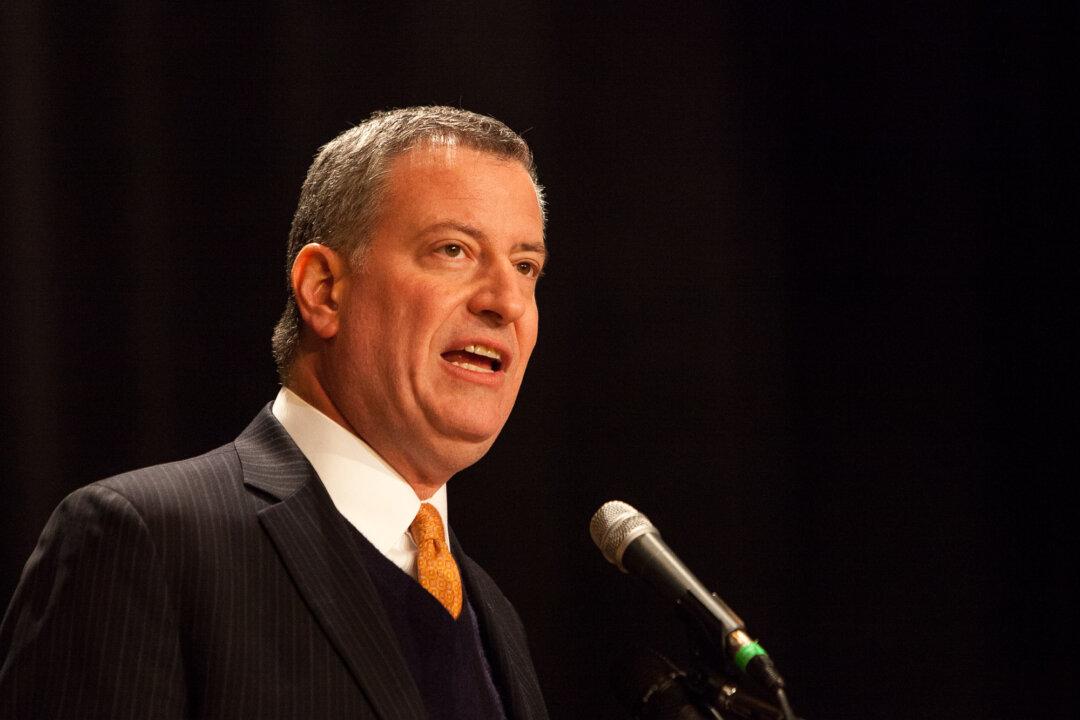NEW YORK—The Rent Guidelines Board voted in defiance of the mayor’s call for a rent freeze on Monday, authorizing 1 percent increases on one-year leases and 2.75 percent increases on two-year leases.
The vote was a surprise since Mayor Bill de Blasio appointed a five-member voting majority to the board. De Blasio called on the board to vote for a freeze on one-year leases on the morning of the vote and backed it when he was the city’s public advocate last year. The call for a freeze was also backed by the council speaker, 22 council members, the public advocate, and the comptroller, among others.
The maximum increases approved by the board are still the lowest it has ever approved in its 30-year history. Tenants of rent-stabilized apartments will see the new increases reflected in lease renewal agreements starting on October 1 this year.
“I’m disappointed that we voted for an increase when the data proves that we needed a rent freeze tonight, but we didn’t have the votes,” said Harvey Epstein, a member of the board who called for a rent freeze before the board’s initial meeting in March.
The city’s rent stabilization law affects the costs of rent in nearly 1 million apartments. The decision to raise the rents was greeted with raucous disapproval at Cooper Union in Lower Manhattan. The crowd charged toward the stage as the board hastily voted to adjourn the meeting.
The Rent Guidelines Board reviews extensive research on housing, the local economy, and the operating costs for landlords. Monday’s vote seemed to pivot on a single member appointed by the mayor, Steve Flax, who backed the proposal made by two landlord representatives.
“I have to vote my conscience. And I have to say this moment is a nightmare. Unlike anyone else on this board,” Flax said, motioning to the two sides of the table occupied by opposing interests. “I’ve had intense pressure from both the right and from the left. Some of it dirty and some of it principled.”
Another member, David Wenk, who has served on the board for seven years, said that the process had broken down this year in favor of a political mandate. He noted that the board’s usual “intellectual rigor was sidestepped” and that “the politicians are missing something by voting for a popular rent freeze.”
De Blasio said that there has “been a pattern of unfairness over the last few years” with tenants shouldering rent increases while landlords’ costs did not increase as much. For de Blasio, the rent freeze could have been another blow to his fight against “income inequality.” The mayor believes that the distribution of wealth in New York City, and around the nation, is a social ill that can be remedied through the municipal government’s at a time when similar initiatives are seeing little support at the state or federal levels.
“We need a course correction,” de Blasio said at an unrelated press conference on Monday. “A one-time action to clearly rectify the mistakes of the past.”
Rent-Stabilized Apartments
Rent-stabilized apartments make up more than 45 percent of all the rental units in New York City according to a 2011 report from the Department of Housing Preservation and Development. An apartment is rent stabilized if it is in a building constructed before 1974, has six or more apartments, and rents below $2,500.
Approximately 100,000 rent-stabilized apartments become vacant every year. At that point, if the rent is higher than $2,500, the apartment becomes deregulated and the landlord can begin charging the market rate. If the rent is below $2,500, the unit remains rent stabilized.
Most New Yorkers do not own their homes, in contrast to the rest of the United States. In 2011, rental units accounted for 68 percent of the city’s available housing stock, according to the triennial Housing Vacancy Study. New York is also unique among other cities because the majority (59 percent) of the rental housing stock is rent regulated.
Last year, the Rent Guidelines Board approved 4 percent increases for one-year leases and 7.75 percent increases for two-year leases.





